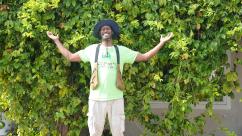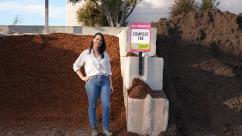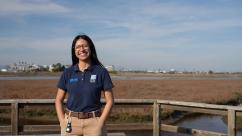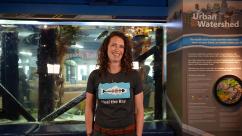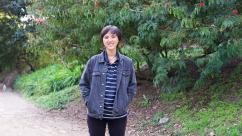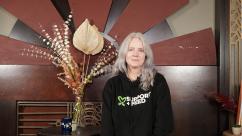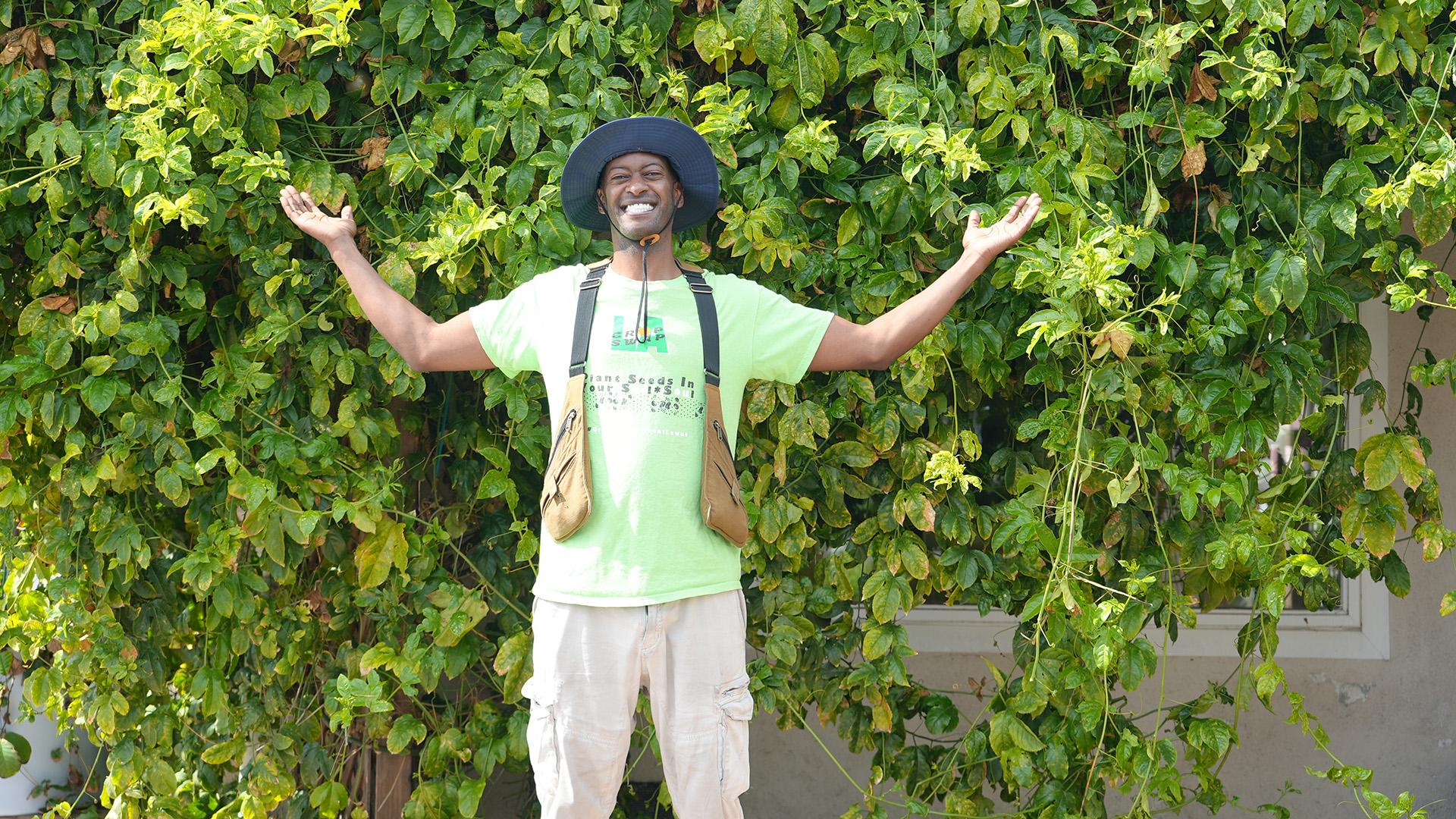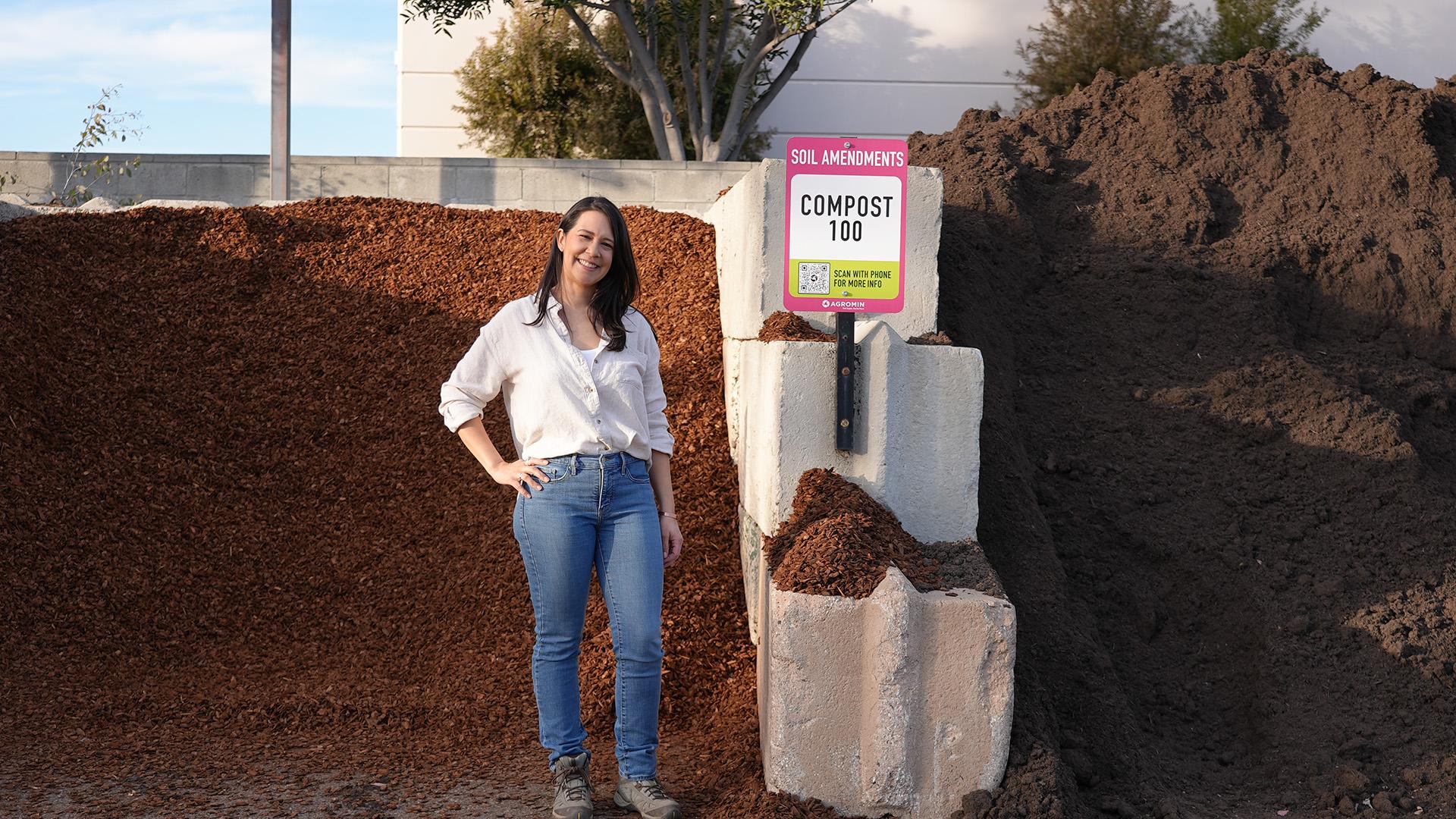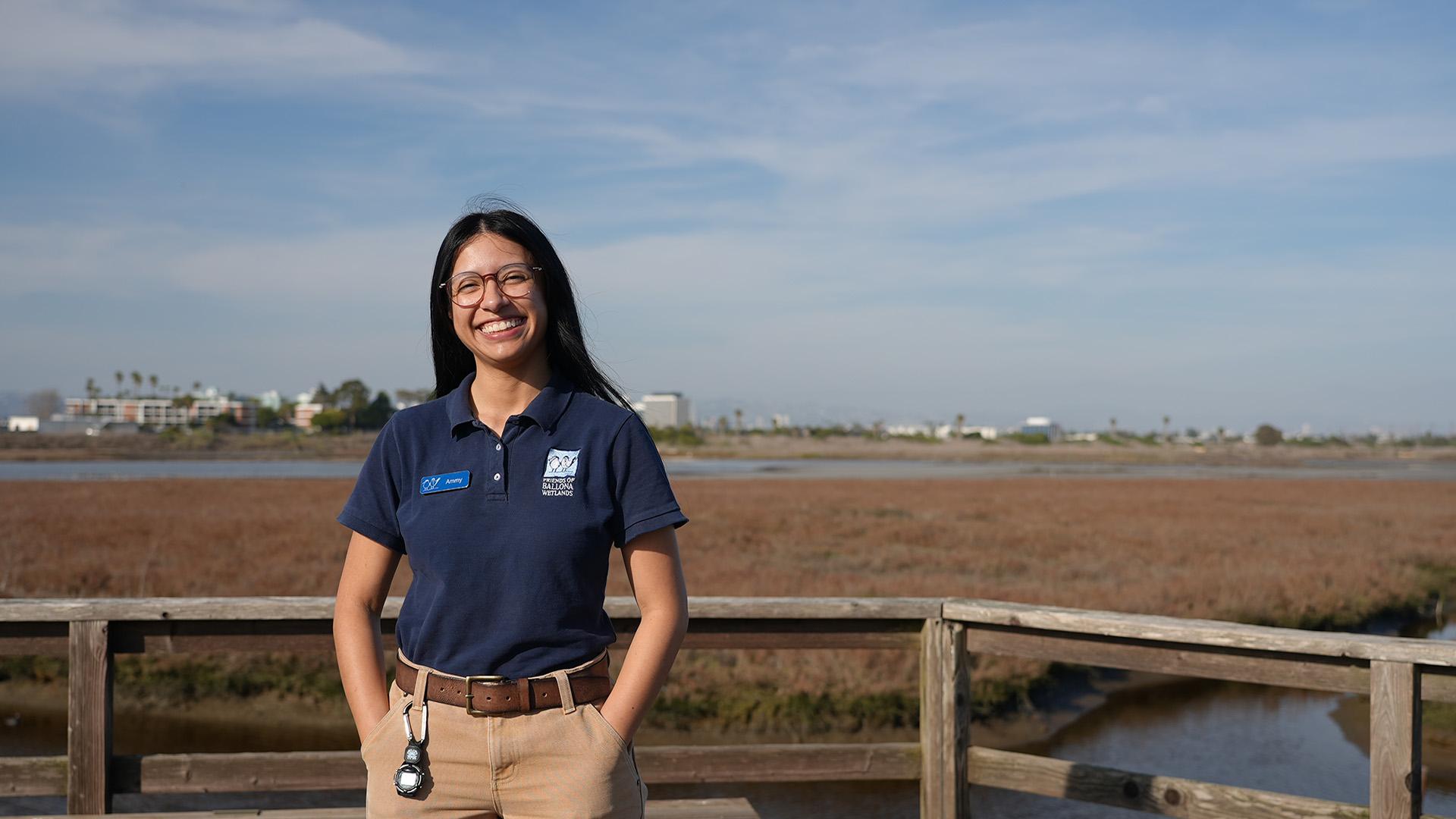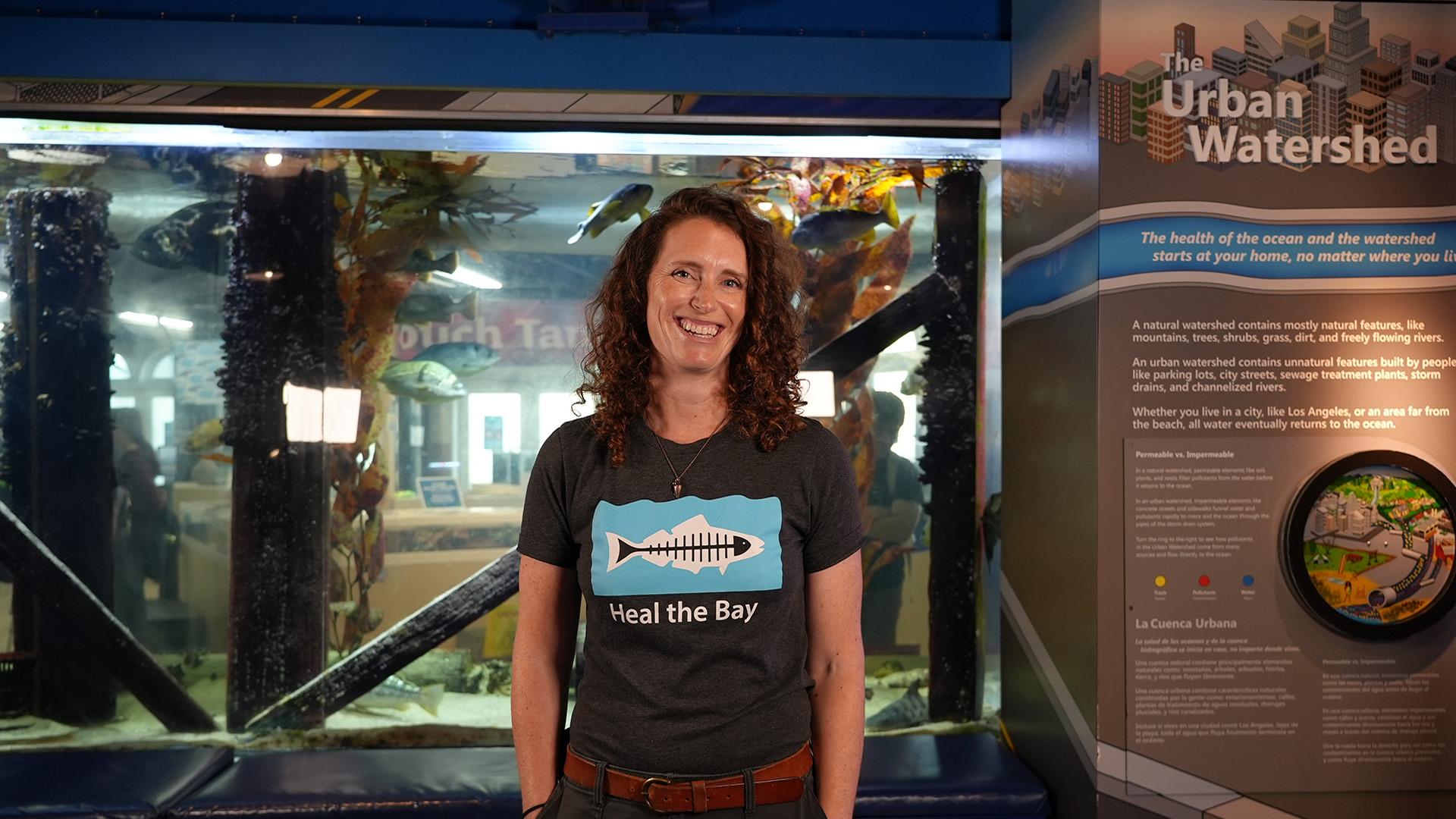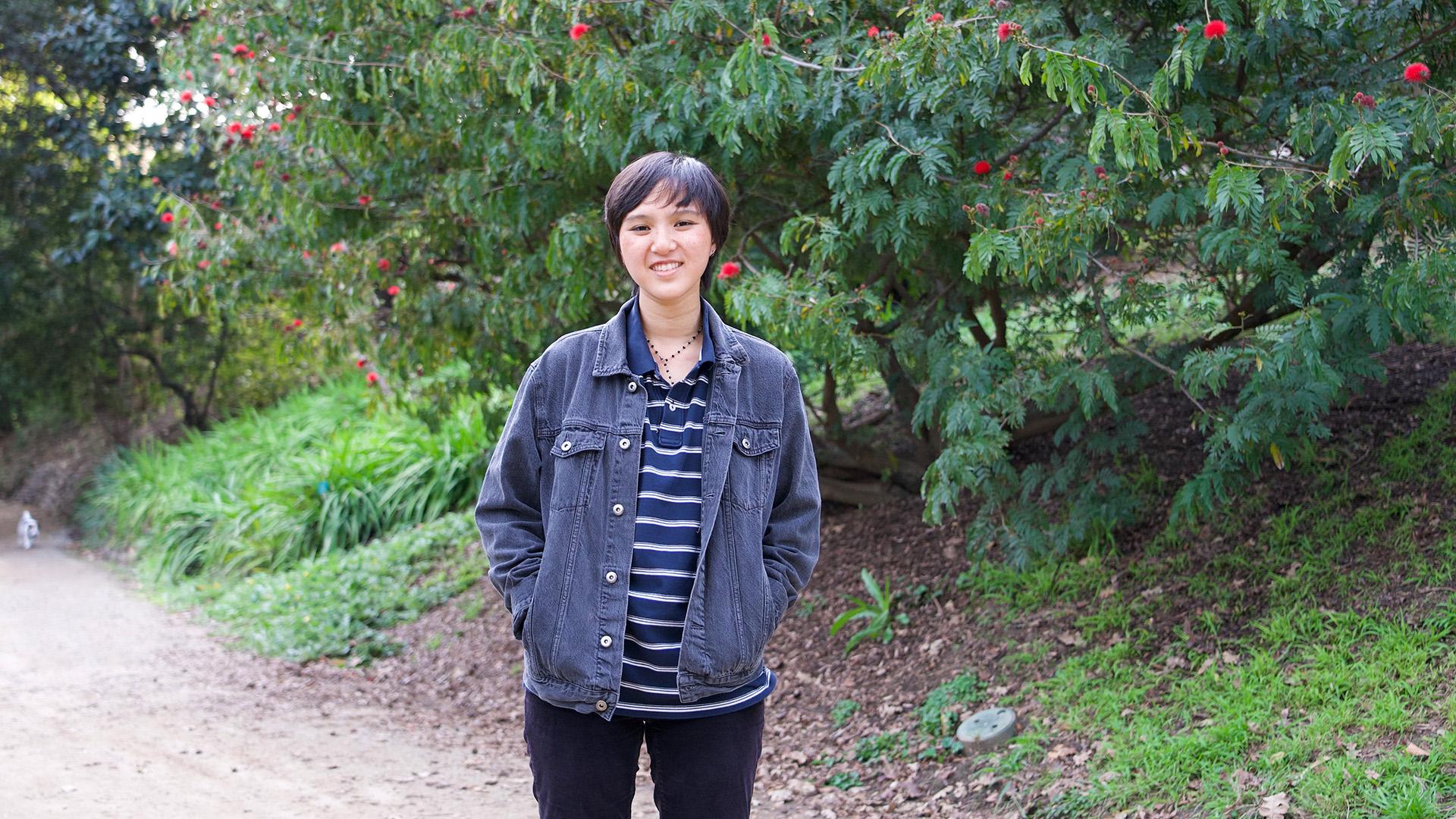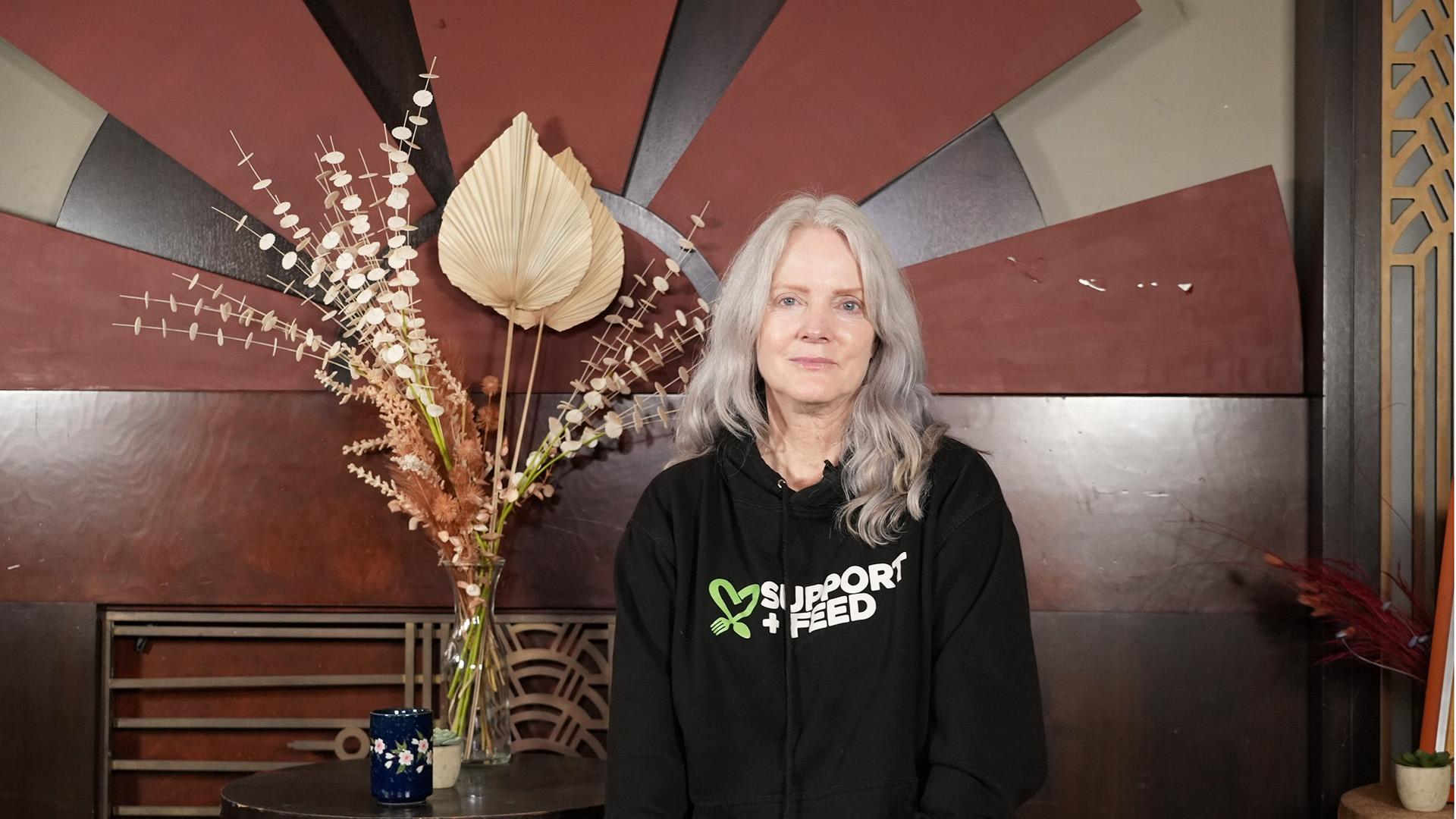Enjoli Ferrari: Composting for Community Resilience
In this Episode
Enjoli's Story
Enjoli Ferrari is the Compost Hubs Program Manager at LA Compost, helping to divert millions of pounds of organic waste and food scraps from landfills, instead transforming them into healthy compost to rebuild local soils. When organic waste is sent to landfills, it breaks down and releases methane, a greenhouse gas with a long-term warming potential that’s 28 times more potent than carbon dioxide. By turning waste into nutrient-packed soil for the county’s residents through regional hubs, LA Compost is not only reducing methane emissions, but also helping to rebuild community ties to nature.
Discussion Questions
One of the most important things you can do about climate change is talk about it.
- Enjoli highlights some of the restoration practices at the Audubon Center at Debs Park in Los Angeles, where her episode was filmed. One such effort focuses on harvesting seeds from native climate-adapted species in the area, growing them in the nursery, and replanting them at the park to support the resilience of the local ecosystem. Why do you think it’s important to use native plants when restoring natural areas, especially in the face of climate change?
- Debs Park was one of LA Compost’s first regional composting hubs, processing over 500 pounds of organic waste each week into nutrient-rich soil. The goal of these hubs is to place composting in community-centered spaces, such as parks, libraries, farmers’ markets, and schools, to make it more accessible and encourage local participation. By keeping composting efforts close to where waste is generated, this model also reduces transportation-related emissions. The compost produced is a climate solution in itself: it can absorb up to ten times its weight in water, helping to retain rainwater and reduce runoff. This benefit is especially valuable as communities face more frequent and intense storms due to climate change. How could your school or neighborhood benefit from having a composting hub like the one at Debs Park?
- Enjoli expresses her belief that “all humans deserve to be seen and acknowledged… It is my personal responsibility and other people’s as well to learn more about other people’s cultures.” This perspective is deeply rooted in Enjoli’s experiences growing up in diverse environments, including foster care, group homes, and juvenile centers, where she encountered a wide range of people, personalities, and cultures. These formative experiences shaped her inclusive approach and helped her develop her “superpower”: the ability to connect with anyone and to tailor information to spark excitement about the environment. What is your “superpower” or passion when it comes to climate solutions? How has your background or experiences influenced this?
- Enjoli emphasizes the importance of mimicking nature’s example of relationships and collaboration as a reminder that we cannot solve climate change in isolation, only through community. As she explains, “none of this happened because of one tree or one plant, it is all working in a symbiotic relationship, and it's the same thing for community and climate conversations.” What is an example of nature in your community (like a park, garden, or tree)? How do you see different parts of nature working together in a symbiotic relationship (which is when two living things help each other)? Why do you think this kind of relationship is important for the environment and for people?
Learn More
Learn about the solutions in this story:
- Solutions Sectors: Industry, Materials & Waste; Food, Agriculture, Land & Oceans
- Solutions Clusters: Use Waste as a Resource; Curb Growing Demands
- Solutions: Increase Composting; Reduce Food Loss & Waste
- For more on all of Project Drawdown’s climate solutions, visit drawdown.org/explorer
- Learn more about Enjoli’s work at LA Compost and through her consulting as a certified arborist at enjoliferrari.com
Explore Climate Solutions 101, the world's first major educational effort focused solely on climate solutions. This video series combines Project Drawdown’s trusted resources with the expertise of inspiring, scientifically knowledgeable voices from around the world: drawdown.org/climate-solutions-101.
Visit the Yale Program on Climate Change Communication, a resource that shares research, communications strategy, and opinion polling on climate communications.
Take Action
- Subscribe to the Project Drawdown newsletter to receive biweekly insights and inspiration to guide your own climate solutions journey.
- Drawdown Ecochallenge, presented by Ecochallenge.org, is a fun and social way to take measurable action on the top climate solutions. Take the challenge, and see how a few weeks of action add up to a lifetime of change for you and the planet. If you want to take action on climate solutions like Enjoli, start a challenge today.
- The Drawdown Labs Job Function Action Guides are practical resources that highlight specific, high-impact climate actions employees in common corporate professions can take at work.
- ChangeX connects people with proven ideas for strengthening communities with the resources needed to implement those changes. Explore countless ways to improve your community and help the world reach drawdown.
- Climate Generation's Green Careers for a Changing Climate Instructional Supplement (for Grades 6-8) contains resources to help young people learn about Green STEM Careers—paths that use STEM skills to help reduce the impacts of climate change. Throughout this instructional supplement, students use Project Drawdown resources to make important connections between climate solutions and different careers.
- Solutions Journalism Network highlights the importance of reporting stories of climate solutions in the media to create a more equitable and sustainable world. Visit their Teaching Climate Solutions resource to find curated collections and the latest examples of climate solutions journalism.
- SubjectToClimate (StC) is a nonprofit online connector for K-12 leaders of all subjects to find materials on climate change at no cost. Explore StC’s educator-generated database to connect to Project Drawdown-based climate education resources.
Sign up to receive updates, provide ideas, and tell us how you might share Drawdown’s Neighborhood in your community.


